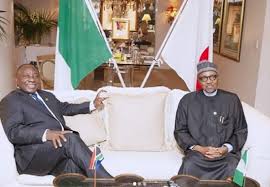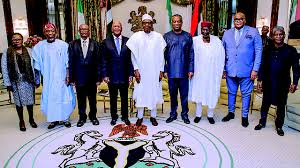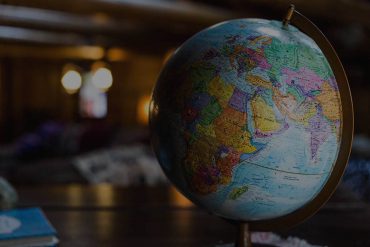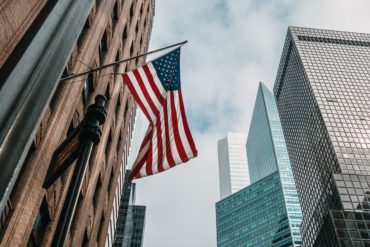By Terhemba Daka, Bridget Chiedu Onochie, Oludare Richards (Abuja), Wole Oyebade (Lagos) and Charles Coffie Gyamfi (Abeokuta)
17 September 2019 | 4:33 am
South African President Cyril Ramaphosa yesterday apologised to Nigeria for the xenophobic attacks on its citizens.
The apology was tendered to President Muhammadu Buhari in the State House, Abuja, by the two special envoys the South African leader dispatched to Nigeria yesterday.
Addressing State House correspondents shortly after a closed- door meeting with the Nigerian president, Ramaphosa’s special envoy, Jeff Radebe said: “Those incidents do not represent what we stand for as a constitutional democracy in South Africa and the president has apologised for these incidents.”
Radebe, who blamed the untoward incidents on the prevailing scourge of unemployment, poverty, and inequality in South Africa, said the development was beginning to impact negatively on the country’s economy, hence the need for diplomatic intervention in order to stem the tide.
“There is an impact of these events on the economy, and that is why the president at his level deemed it necessary to send us as special envoys so that we record appropriately what steps and measures we are making as South Africa to deal with these methods.
“We believe that the agenda 2063 for the Africa we want is one that will help not only South Africa but the whole of the continent to unite around that common goal of ensuring that our people, especially young people, believe that the future of Africa is bright.
“It is the responsibility, therefore, not only of governments of Nigeria and South Africa but of ordinary citizens to play their part in ensuring, that these incidents do not reoccur.”
Radebe explained that the South African government was already on top of the situation with specific instructions to the security agencies to apprehend the culprits.
“He (Ramaphosa) has also instructed law enforcement agencies to leave no stone unturned in ensuring that all those involved are brought to book so that the rule of law can prevail in South Africa.”
On the need to ensure that both countries continue to play a critical role in the rebuilding of Africa to attain the agenda 2063, the envoy said the meeting with President Buhari afforded them the opportunity to recall with fond memories the historical ties that existed between Nigeria and South Africa, especially during the dark days of apartheid.

“We always knew that the Nigerian people and their government always stood behind our leaders who were fighting against the obnoxious system of apartheid. Even Nigerian families contributed to making sure that apartheid is ended. Though Nigeria is far from South Africa, it was regarded as the frontline state because of the principled stand that all leaders of Nigeria made to end the system of apartheid.
“We also remember, among others, a head of state, Gen. Murtala Mohammed, who played a key role, and of course one of the founding fathers of the Nigerian nation, President Nnamdi Azikiwe.
“The crisis must serve as an opportunity for us to make sure that the scourge of unemployment, poverty, and inequality in the whole of Africa is attended to by our leaders.
“We also expressed the President Ramaphosa’s wish that when President Buhari would pay his state visit to South Africa on the 3rd of October, the bi-mission commission that exists between the two governments, and has now been elevated, will serve as a forum to address all issues of mutual concern about South Africa and Nigeria.”
On Nigeria’s insistence on compensation to the victims of the attacks, Radebe said: “During President Buhari’s state visit to South Africa, there will be detailed discussions which will be held there. I do understand that the issue of compensation, restitution is part of the agenda in the draft the Nigerian government has presented to South Africa.
“We should wait until October 3rd to see how that unfolds. But I can indicate, as a lawyer, that the South African laws require that all registered companies must have public insurance in terms of things of this nature. But like I said, that meeting will just be held.”
The special envoy said the law enforcement agencies were working day and night to apprehend all those involved in the unfortunate incidents.
“I’m told that more than 50 people have been arrested thus far. Let’s wait until the whole issue has been resolved. It is a security cluster led by the minister of defence as well as the minister of police that are working around the clock to make sure that all those that are alleged to be involved in these incidents are brought to book.”
On why it took South Africa so long to take steps against the menace since xenophobia is not a recent development, Radebe said: “This incident has been happening from time to time. I do recall recently that around 2008, it always coincided with periods when the economy is experiencing tough times in our country. As you know, we are still emerging from the system of apartheid, where the last unemployment rate was around 29 percent.
“It seems to us that some of these incidents occur in areas where there are poverty, unemployment, and fight for scarce resources. But no amount of hunger or hardship justifies the looting of property, killing of people, whether they are South Africans or foreigners. We regard that as an act of criminality.”
The Foreign Affairs Minister, Geoffrey Onyeama, said: ‘‘The Nigerian ambassador to South Africa has not been recalled but he has been asked to come just to help in giving a comprehensive picture of events there to President Buhari.”
A statement later issued yesterday by the Special Adviser on Media and Publicity, Femi Adesina, said President Buhari during the closed-door meeting, recalled the roles played by Nigeria in engendering majority rule in South Africa, a development which he said ended the apartheid segregationist policy.
“Going back to historical antecedents, we made great sacrifices for South Africa to become a free state. I was a junior officer to Gen. Murtala Muhammed, and Gen. Olusegun Obasanjo. They were not operating in a democracy, but they got Nigerians to support them in the bid to seeing a free South Africa.
“Our leadership was quite committed to the cause. We made sacrifices, which younger people of today may not know. During my last visit to South Africa with the late President Robert Mugabe, it was very emotional, as Mugabe spoke about Nigeria’s contribution to free South Africa,” Buhari recalled.
He extended appreciation to President Ramaphosa, through the special envoy, “for coming to explain to us what happened in South Africa recently, leading to killing and displacement of foreigners.”
Buhari spoke yesterday as Obasanjo urged the affected countries to present their case to the African Union (AU). He also advised the affected countries to consider other measures if the attacks persisted.
Obasanjo, who responded to the xenophobic crisis through a letter to the President of the Inkatha Freedom Party, Prince Mangosuthu Buthelezi, yesterday, condemned the attacks and South African government’s inaction.
In the letter which was made available to journalists through his media aide, Kehinde Akinyemi, Obasanjo said: “For any African country to encourage or allow or not seriously sanction xenophobia against Africans in their country, is a great disservice not only to the country where xenophobia takes place and the countries of the victims concerned, but also a great disservice to the whole of Africa and black race.”
The former President declared that there was a “need for fence-mending, reconciliation, and wound-binding between South Africa and the countries whose citizens have been victims of xenophobia and Afrophobia in South Africa.”
Obasanjo suggested that the government of South Africa should send emissaries to the countries concerned “to explain, apologise and agree on the way forward for mutual understanding, accommodation, reconciliation, and binding the wound to promote unity, concord, and brotherhood in Africa.”
To him, however, “repatriation of Nigerians from South Africa is obviously not a permanent solution. At best, it is palliative. But the hurt will still remain for some time.” He kicked against reprisal attacks on South Africans, insisting that “revenge is neither a desirable solution.”
Also yesterday, the Speaker of the ECOWAS Parliament, Moustapha Cisse Lo, described the xenophobic attacks as barbaric and inappropriate acts with disastrous humanitarian, socio-economic and diplomatic consequences.
According to him, the actions constitute real threats and serious issues which could stand as obstacle to the African integration agenda so dear to the ECOWAS parliament and to which it is resolutely committed.
The parliament called on the South African authorities to assume their responsibility by guaranteeing all foreign nationals in the country the right to life, physical integrity, and free movement.
Cisse Lo also called on all African States and the African Union to adopt diligent initiatives to restore peace and security and ensure a return to calm in South Africa and all other states.
“At the time of our session, serious events are taking place on our continent and should be given special attention. Indeed, in South Africa, in recent weeks, we have witnessed an upsurge in extremely violent xenophobic acts. These sad images of Africa, these painful events and the tensions they generate challenge us as elected representatives of our peoples. We are extremely concerned and deeply outraged,” he said.
Meanwhile, the evacuation of Nigerians stranded in South Africa over xenophobic attacks continues today as additional 319 people are expected back home.
The Chairman, Nigerians in Diaspora Commission (NIDCOM), Abike Dabiri-Erewa, who gave the update yesterday on the evacuation, stated that the returnees that had been profiled according to their states had over 30 children among them.
The second batch of Nigerian returnees will arrive in Lagos on board the Air Peace Boeing 777 flight.
The first batch arrived at the Murtala Muhammed International Airport (MMIA) last week with 178 persons after alleged restriction by the host authorities. The “frustration” forced Air Peace to delay the second batch of evacuation, which was originally scheduled for a few hours after the arrival of the first batch.
The Chairman of Air Peace, Allen Onyema, yesterday said all was set for another flight to South Africa.
Onyema confirmed that the special flight would leave Nigeria in the early hours of today and arrive at OR Tambo International Airport, South Africa, in the morning. The return leg is expected to begin by noon and to touch down Lagos by 7:00 p.m. today.



